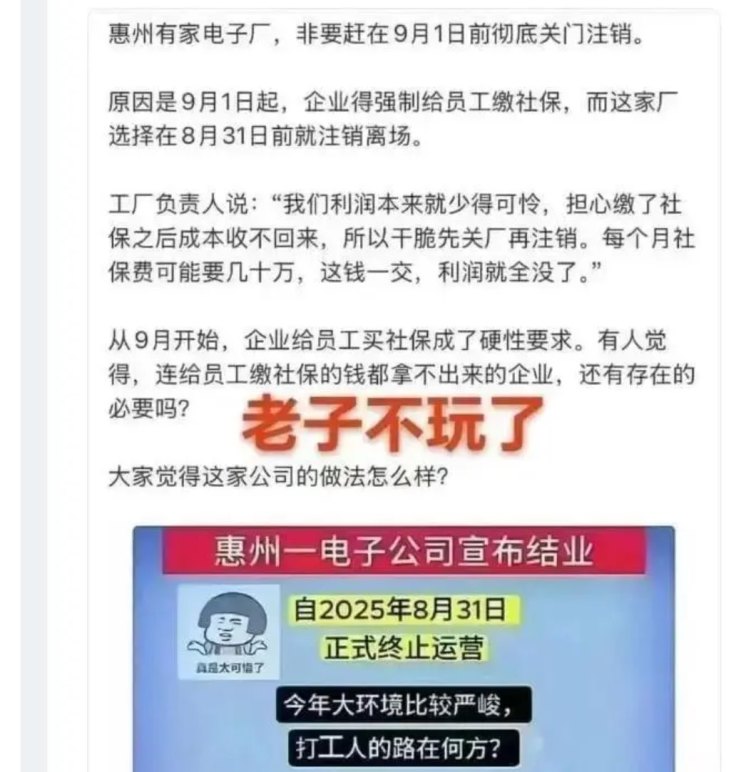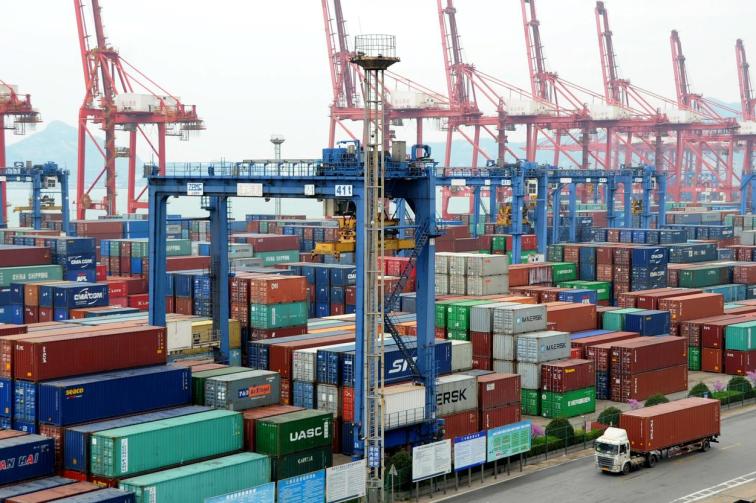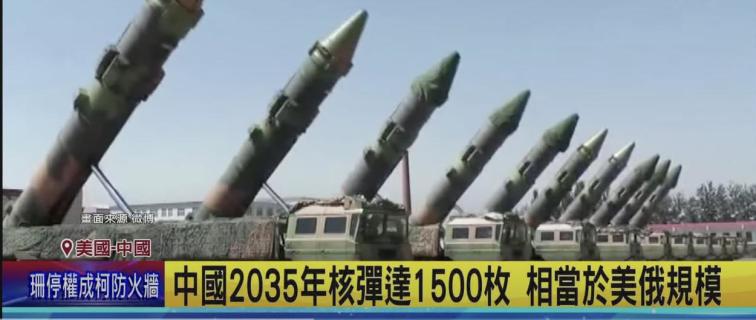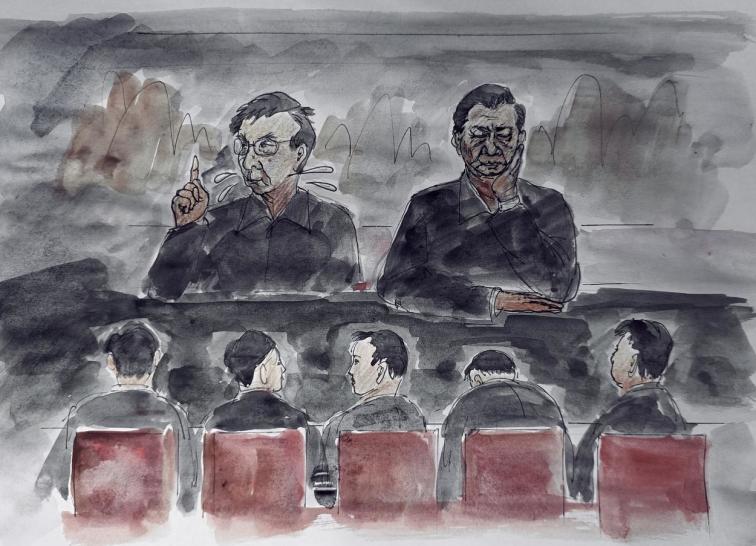In 2022, the demolition of 15 unfinished buildings in Yunnan took only 15 seconds. (Video screenshot)
[People News] China’s real estate market continues to slump. Housing prices in many first- and second-tier cities have plunged, causing the wealth of many middle-class families to shrink. A 2022 survey on Chinese household asset allocation by Peking University showed that real estate accounted for over 70% of household assets, and in some families over 90%. Asia Financial pointed out in July this year that if housing prices were to fall another 30%, over 90% of China’s middle class would be wiped out. Now, the fire has spread to state-owned enterprises.
If they keep waiting, they’ll lose even the crumbs
Recently, a wave of state-owned enterprises across China have begun listing large amounts of real estate for sale. In professional terms, this is a “debt-driven” asset clearance. From prime locations in Beijing’s Xicheng District to residential compounds in fourth-tier cities, these sell-offs by state firms show not only that they are “de-real-estating” themselves, but also that in the face of long-term economic stagnation, they simply can’t hold out any longer. It further reflects that they see no hope in the future of China’s real estate market, and are being forced into painful “cutting of flesh,” dumping properties in bulk. If they wait any longer, they may lose everything, not even scraps remaining.
According to The Dajiyuan, these sales by SOEs line up with the latest real estate data, underscoring the market chill.
On October 1, the China Index Academy released data showing that in September, the average price of new homes across 100 cities nationwide was 16,926 yuan per square meter; the average price of second-hand homes was 13,381 yuan per square meter, down 0.74% month-on-month and down 7.38% year-on-year.
Daily Economic News reported that as of September, second-hand home prices in 100 cities have fallen month-on-month for 41 consecutive months. In Q3, prices dropped 2.26% in total, widening 0.14 percentage points from Q2. For the first three quarters, they dropped 5.79% cumulatively.
According to The Dajiyuan, Beijing Property Rights Exchange data showed that Beijing Tianheng Real Estate Group’s subsidiaries are listing 111 homes for sale, with floor prices ranging from 1.06 million to 13.97 million yuan, totaling over 330 million yuan, all in Beijing, covering Xicheng, Haidian, Chaoyang, Daxing, Shijingshan, Fangshan, and Fengtai districts.
Second-hand home trading platforms showed that in September, the listed unit price in that community was about 154,000 yuan per square meter, a 41% drop in 3 months.
Beijing’s Xicheng District is one of the city’s oldest and most politically and culturally important core districts. It is very close to the administrative, political, and cultural centers. It usually corresponds to the best educational resources, keeping home prices high and liquidity strong. Now that even this prime location has seen a steep drop in housing prices, it shows that China’s economic collapse has reached an irreparable state, and even mainstream society’s wealth is shrinking.
China Real Estate Net reported that insiders said the Xicheng District homes being sold were all Tianheng Group’s own properties—some remaining inventory from their projects, some rental properties. Now, under the banner of “optimizing asset structure and easing liquidity pressure,” they are selling them to avoid greater devaluation risk. “Devaluation,” simply put, means shrinking capital.
Tianheng Group, originally Beijing Xicheng Urban Construction Development Group founded in 1994 with registered capital of 11 billion yuan, is under the Xicheng District SASAC. Its large-scale sell-off is simply due to plummeting revenues and soaring losses. In the first half of this year, revenue was 670 million yuan, down 13.4% year-on-year, far below the 13.2 billion peak in 2021. Net profit attributable to the parent company was a 390 million yuan loss, compared to a 5.07 billion loss last year. Its asset-liability ratio surged to 83.5%. Losses mainly came from inventory impairment and asset devaluation in joint ventures, as well as upfront costs for urban renewal projects. In 2024, per higher authorities, Tianheng fully exited property development.
United Ratings stated in its credit report that Tianheng’s sales were mainly in Beijing and Chengdu. In 2024 sales were 2.58 billion yuan; in the first half of 2025, only 710 million yuan.
At the same time, China Nuclear Engineering Co. is selling 3 apartments in Jinyu Guanlan Times, Changping District, Beijing, each around 3 million yuan, with sizes of over 90 square meters. It is also dumping 68 apartments in a residential compound in Fuzhou Town, Wafangdian City, Dalian, priced about 3,500 yuan per square meter. Second-hand sales in September there averaged 4,500 yuan per square meter, with a 92.6-square-meter unit selling for about 545,000 yuan. In other words, China Nuclear Engineering is undercutting the market to dump properties.
Corporate data shows that China Nuclear Engineering Co. is a leading specialized nuclear power project management firm and a core member of China General Nuclear Power Group.
These moves show that some SOEs and central SOEs are undergoing “de-real-estating.”
Among the listings on Beijing Property Rights Exchange, the highest was China Securities Depository and Clearing Corporation (CSDC), which is selling Building 12, Xibahenali, Chaoyang District—its headquarters building—with a base price of 479 million yuan. The listing runs from September 26 to October 10.
Records show that Building 12 is an office tower, 15 stories above ground, 1 below, built in 1997, and vacant. This is not its first sale attempt. A month earlier, CSDC had listed it at 569 million yuan, found no buyer, and relisted at a 90 million yuan discount.
Mass Dumping from Apartments to Parking Spaces—The Clearance Spreads Nationwide
Chengdu Railway Xingda Construction Co. listed 48 apartments in Shigu Xintiandi, Shifang City, Sichuan, with a base price of 5.97 million yuan, expiring September 28.
Nanjing Yangtze River Oil Shipping Real Estate Co., under China Merchants Group, is selling 36 homes and parking spaces at Nanjing Crystal International Plaza.
Declining revenue and widening losses have become common among SOEs. Recently, many SOEs in Guangzhou and Shandong also rushed to dump properties, with the trend spreading across provinces.
Guangzhou Property Rights Exchange data shows Hongmian Modern Industry Development Co. listed 17 apartments at once; Guangzhou Airport Construction Investment Group listed about 60 homes; Guangzhou Metro Group listed 26 homes; and Nanhai Duobao Electric Power Installation Co. in Foshan is offloading 79 parking spaces.
Shandong Property Rights Exchange shows SOEs in Yantai, Liaocheng, and Zibo are listing over 100 properties, shops, and parking spaces worth tens of millions in total.
Selling Homes for Cash to Ease Liquidity Crunch
An industry analyst said these local SOEs are mass “selling homes” partly to revitalize idle, inefficient assets and prevent state asset devaluation, and partly to get cash to ease liquidity pressure. With the real estate downturn, combined with local government and financing platform debt reduction tasks, short-term repayment pressures have surged.
This is part of the market clearing process. But with second-hand housing inventory already climbing, dumping hundreds or thousands of “official listings” at once will obviously shock the market.
Finance blogger “Tom” said plunging home prices show no bottom. SOEs have no reason to hold anymore. More and more will lead the crash. Their mass sales prove they don’t believe housing prices in 2025 have bottomed. They would rather take steep discounts to dump their stock. In short, even the CCP itself no longer believes that homes in first-tier cities have value. △











News magazine bootstrap themes!
I like this themes, fast loading and look profesional
Thank you Carlos!
You're welcome!
Please support me with give positive rating!
Yes Sure!